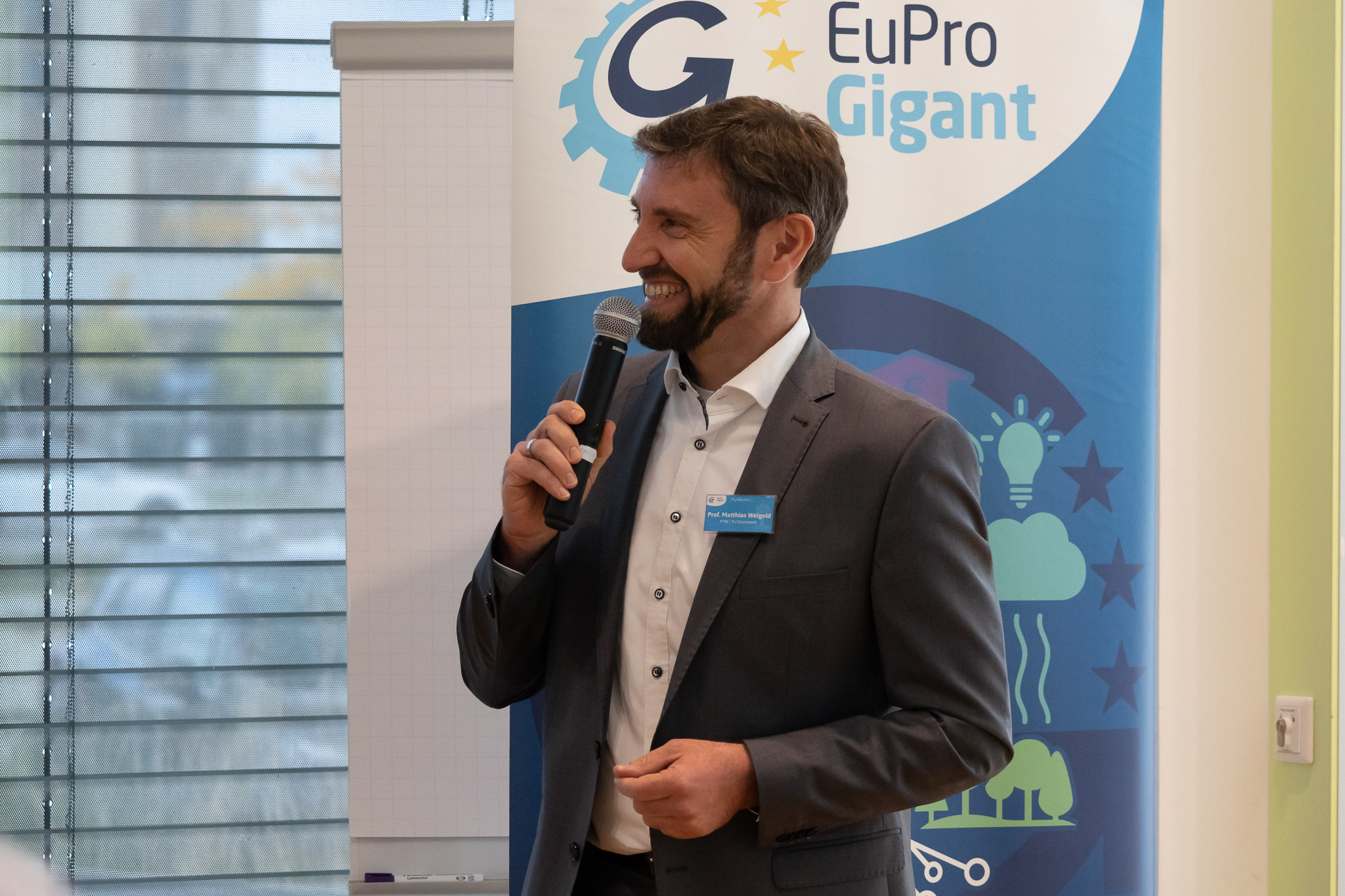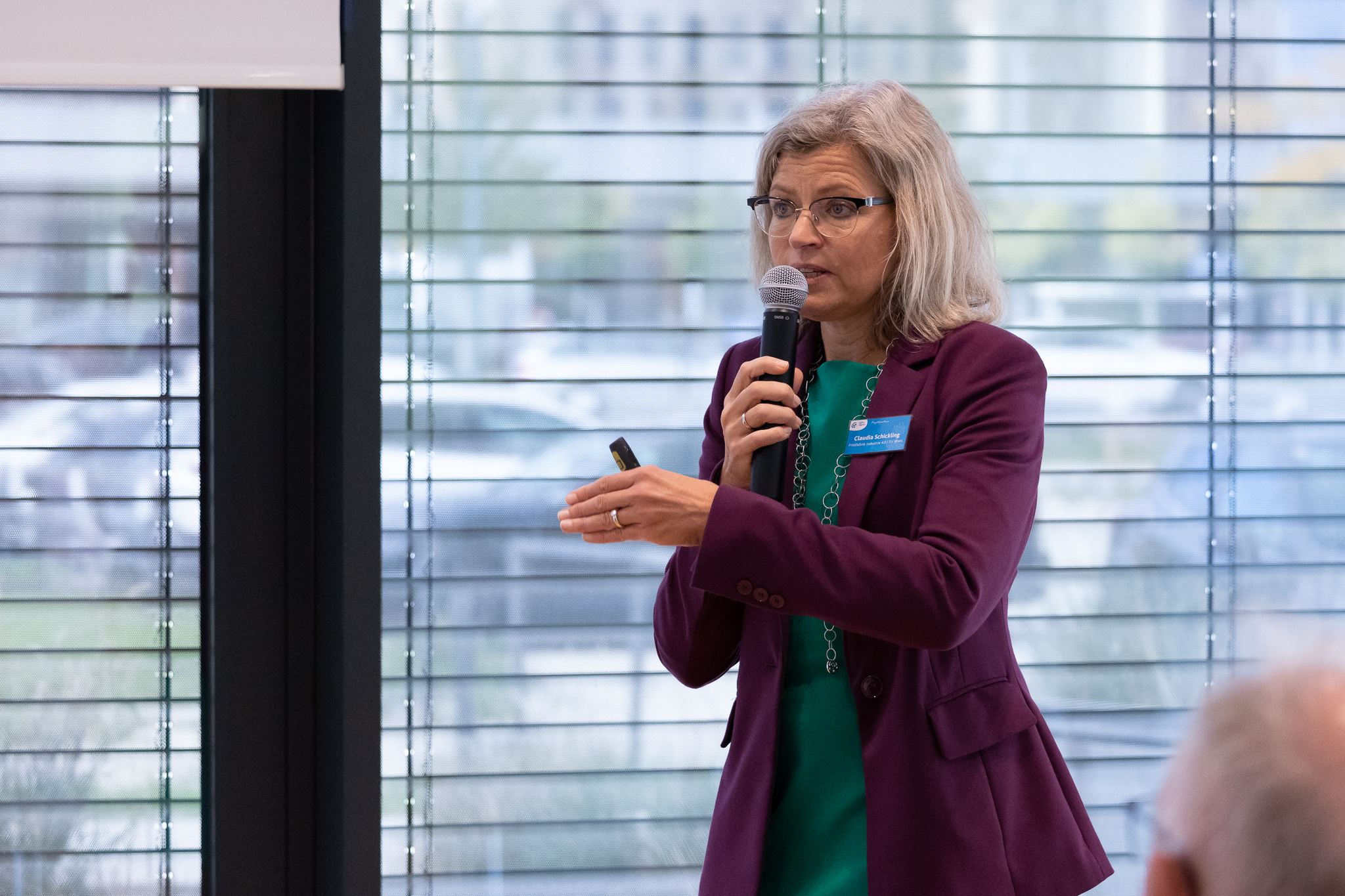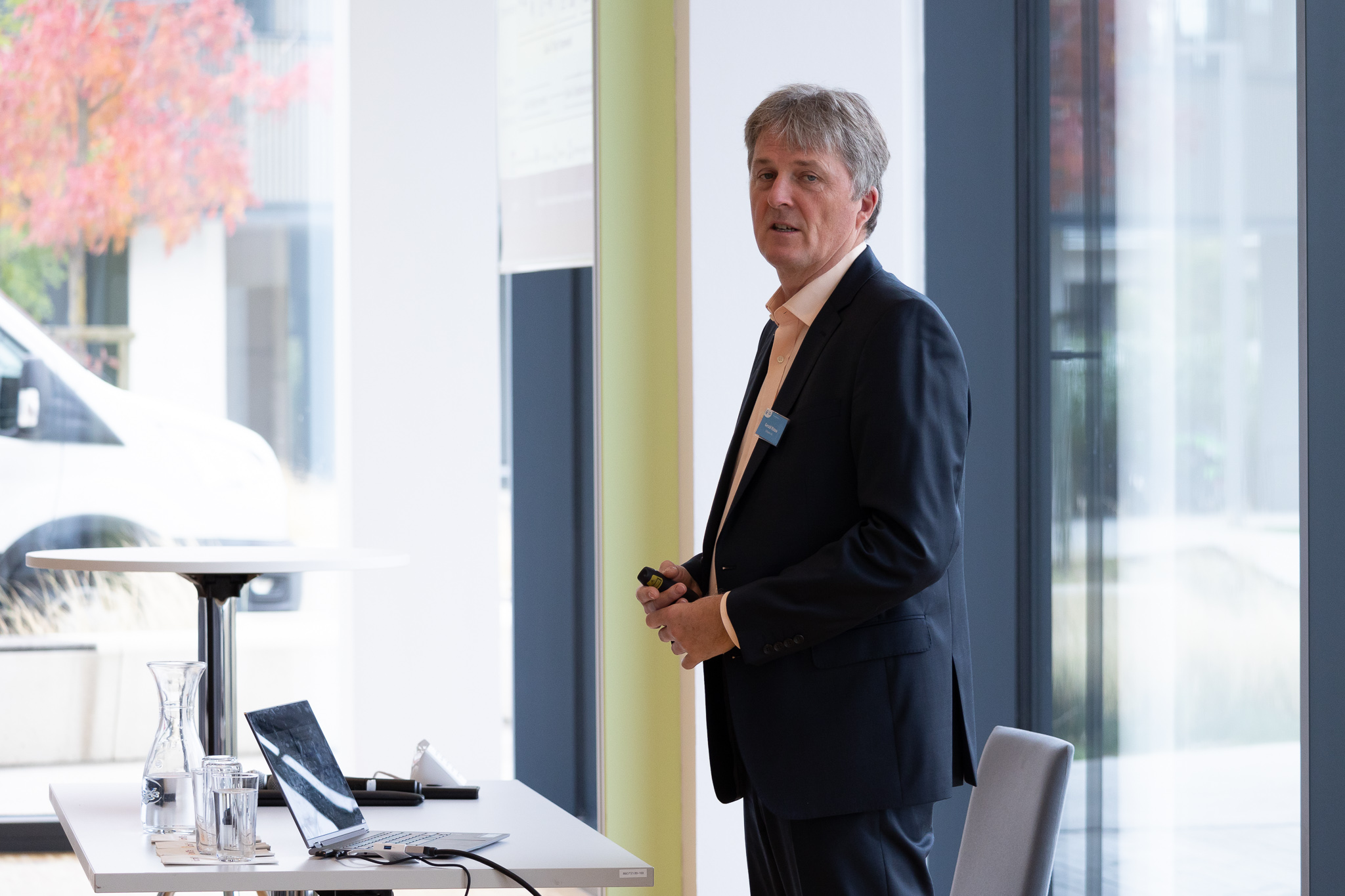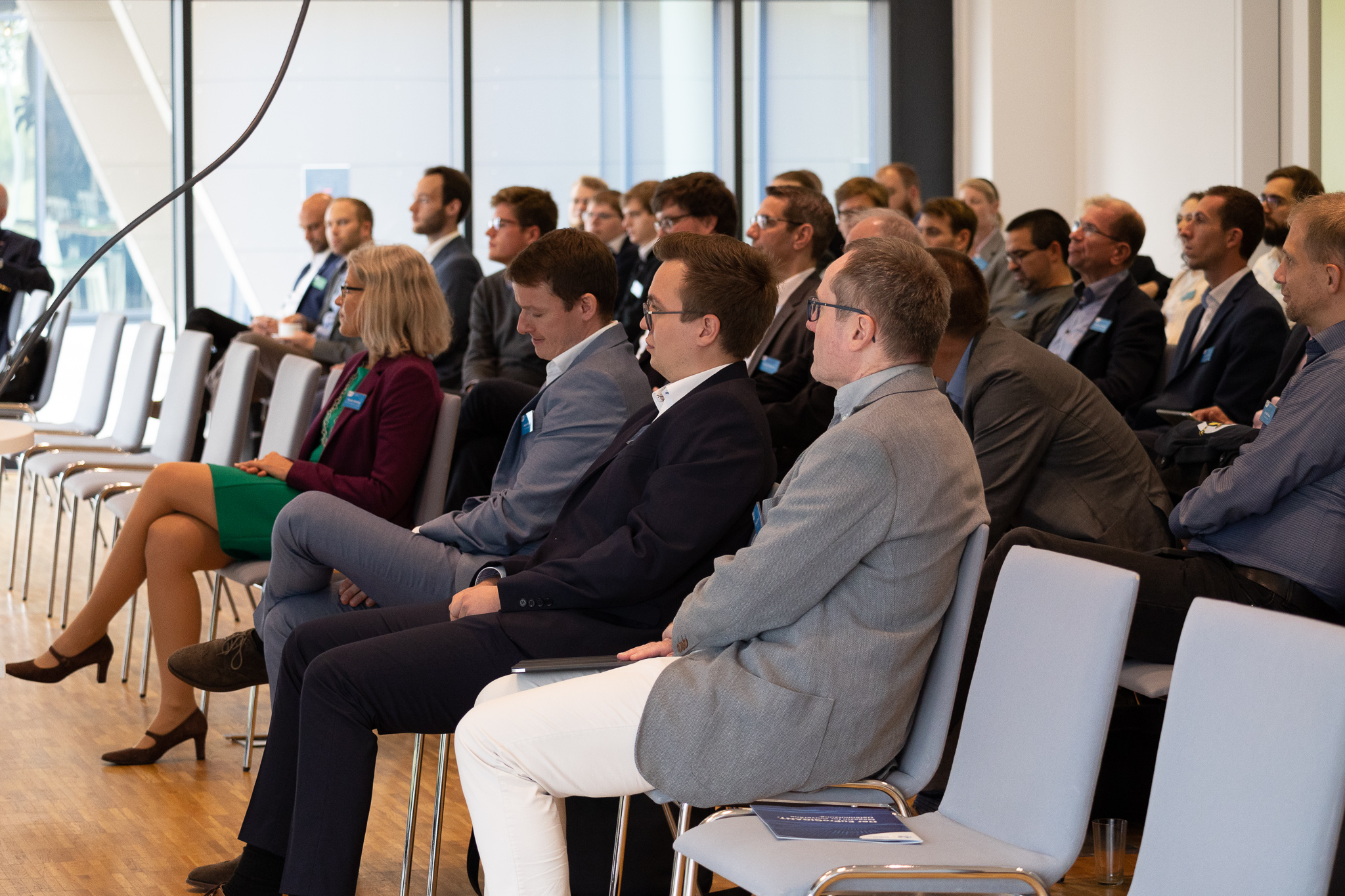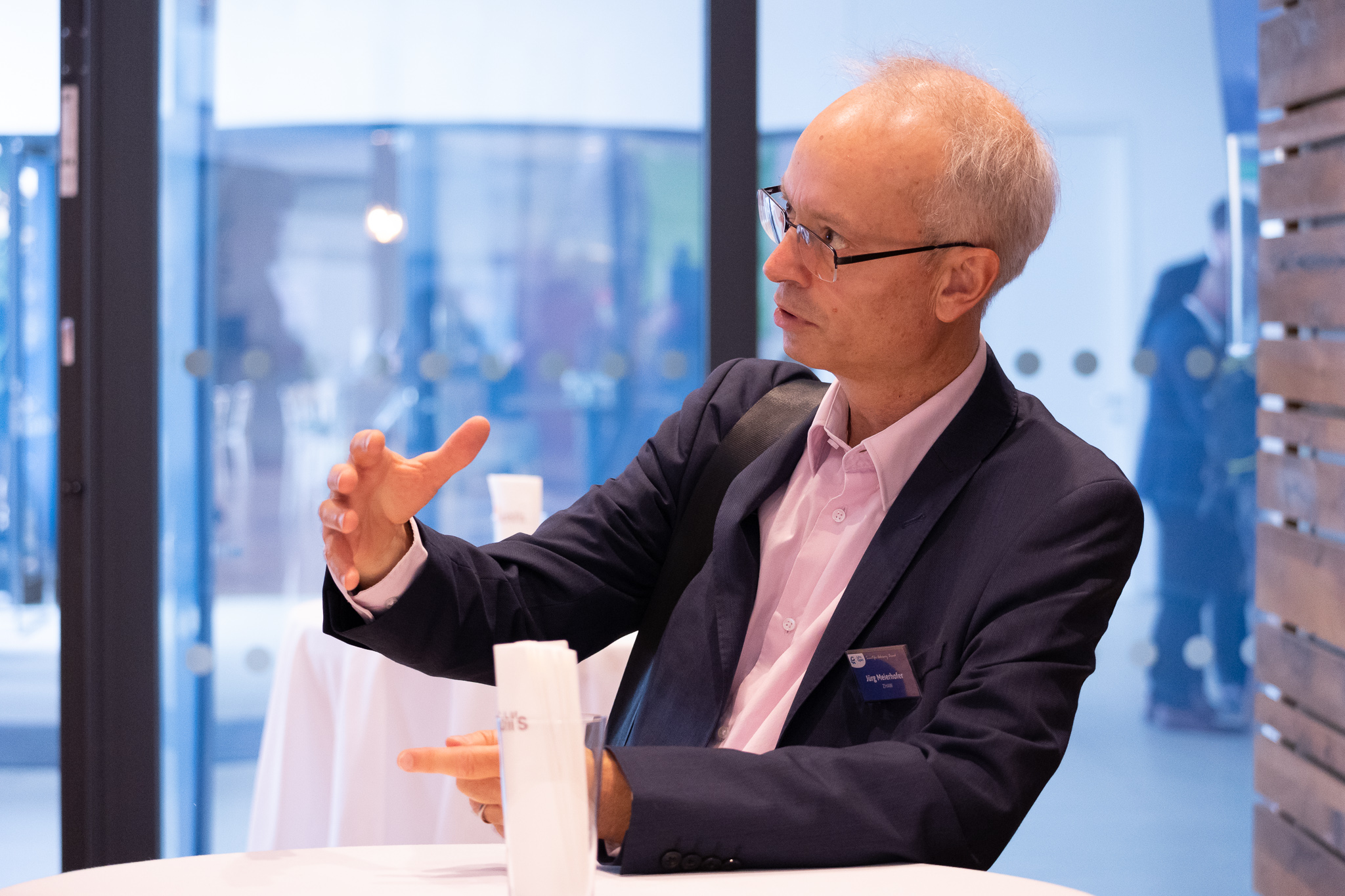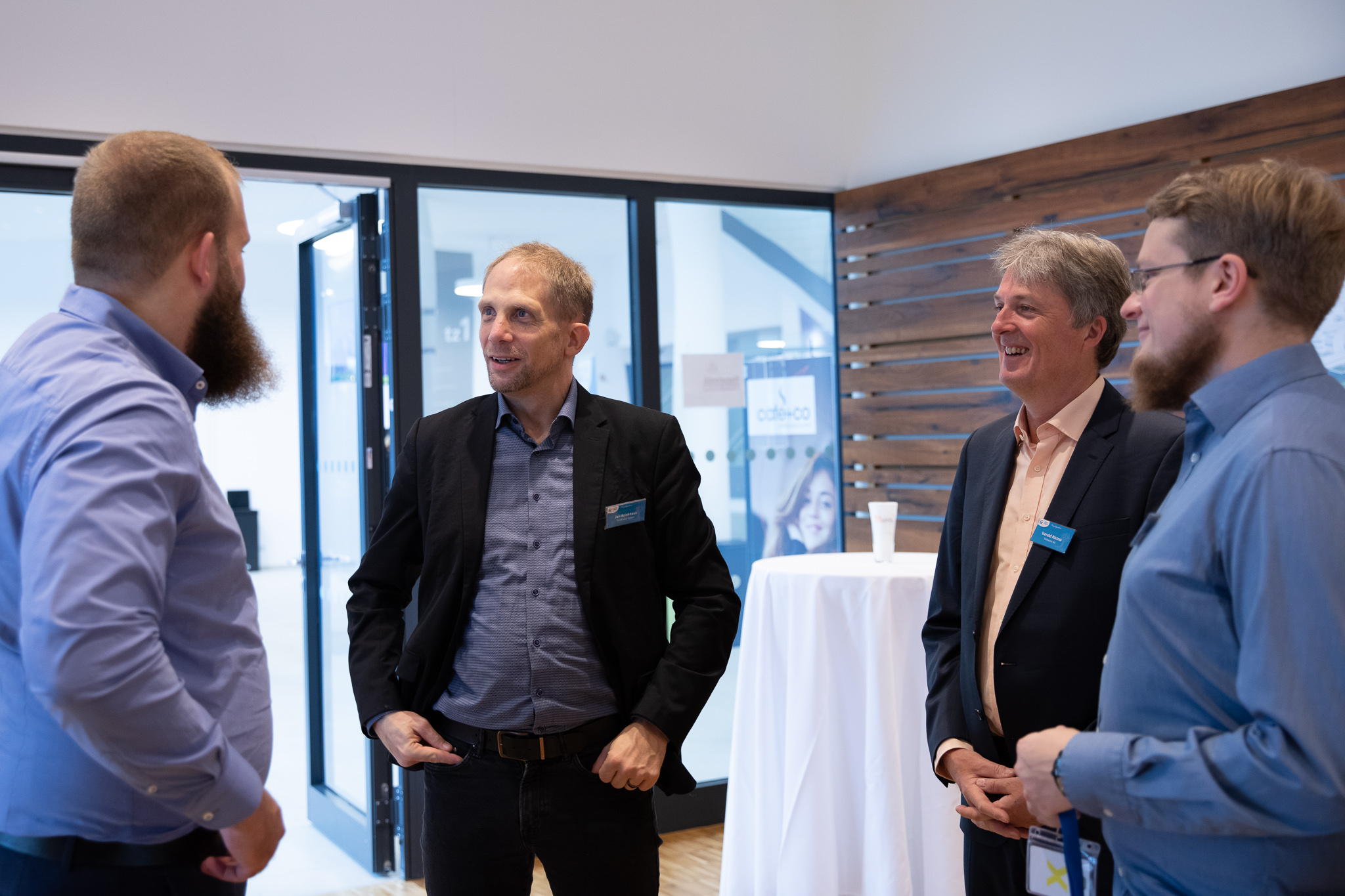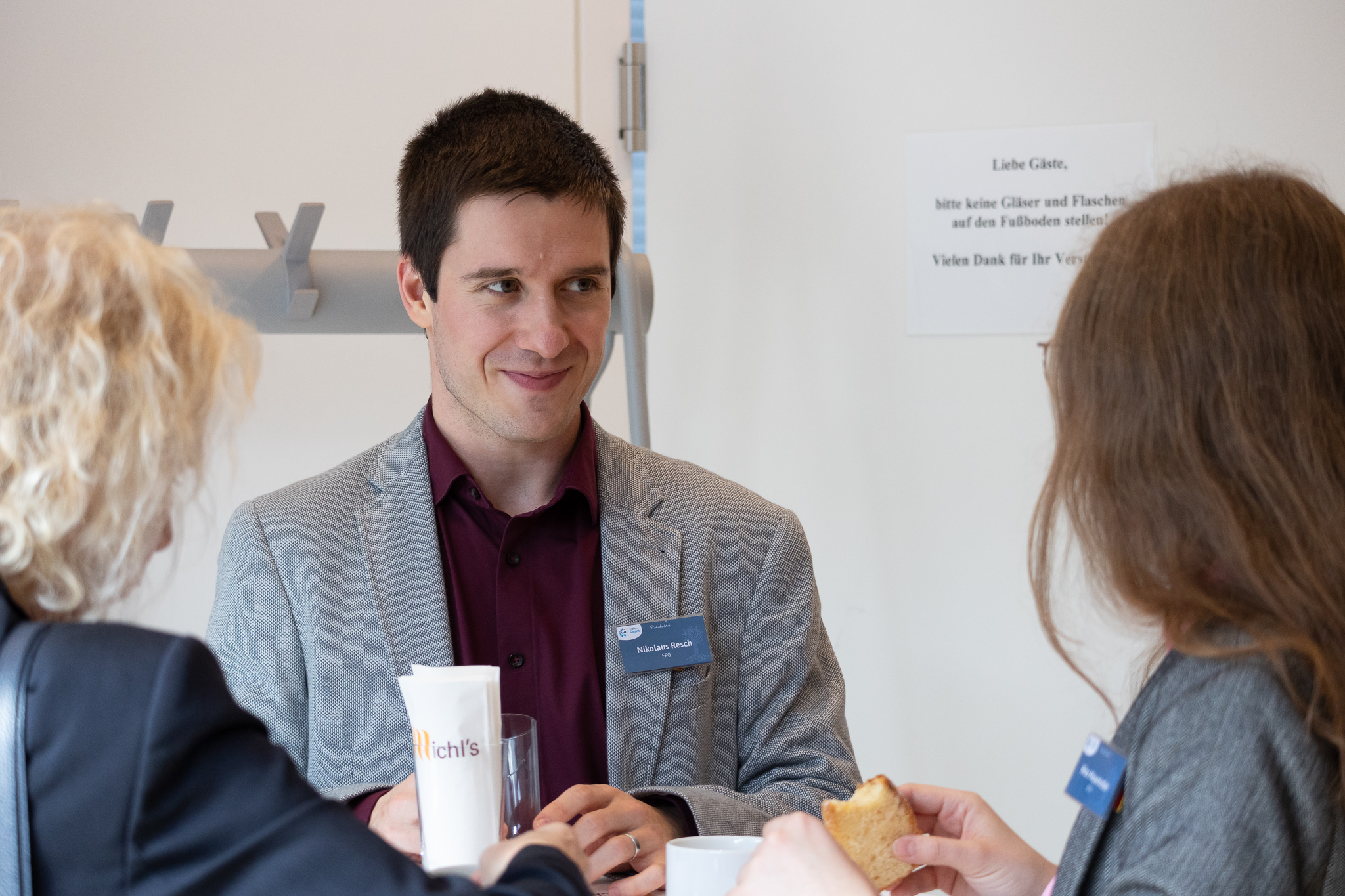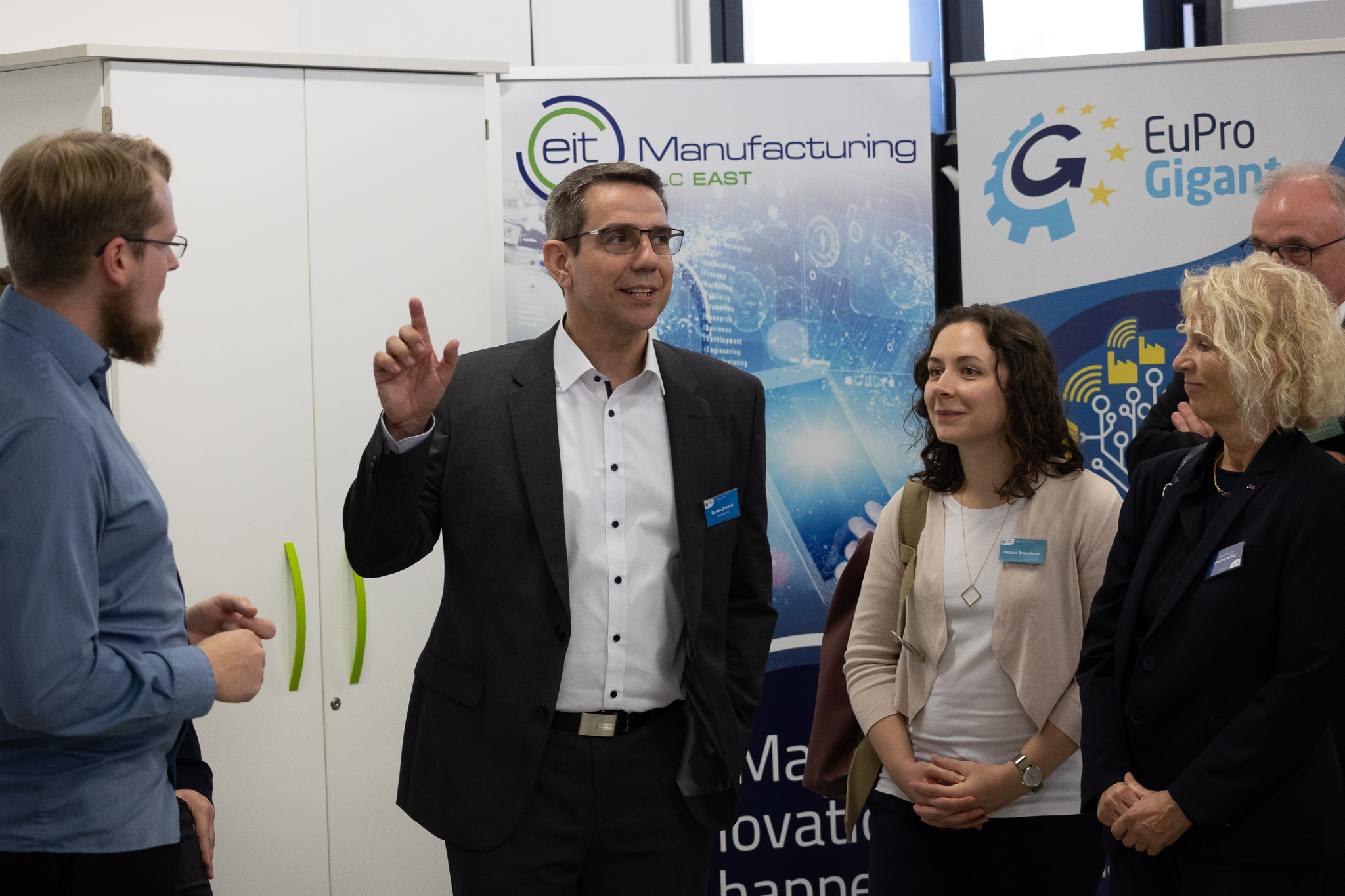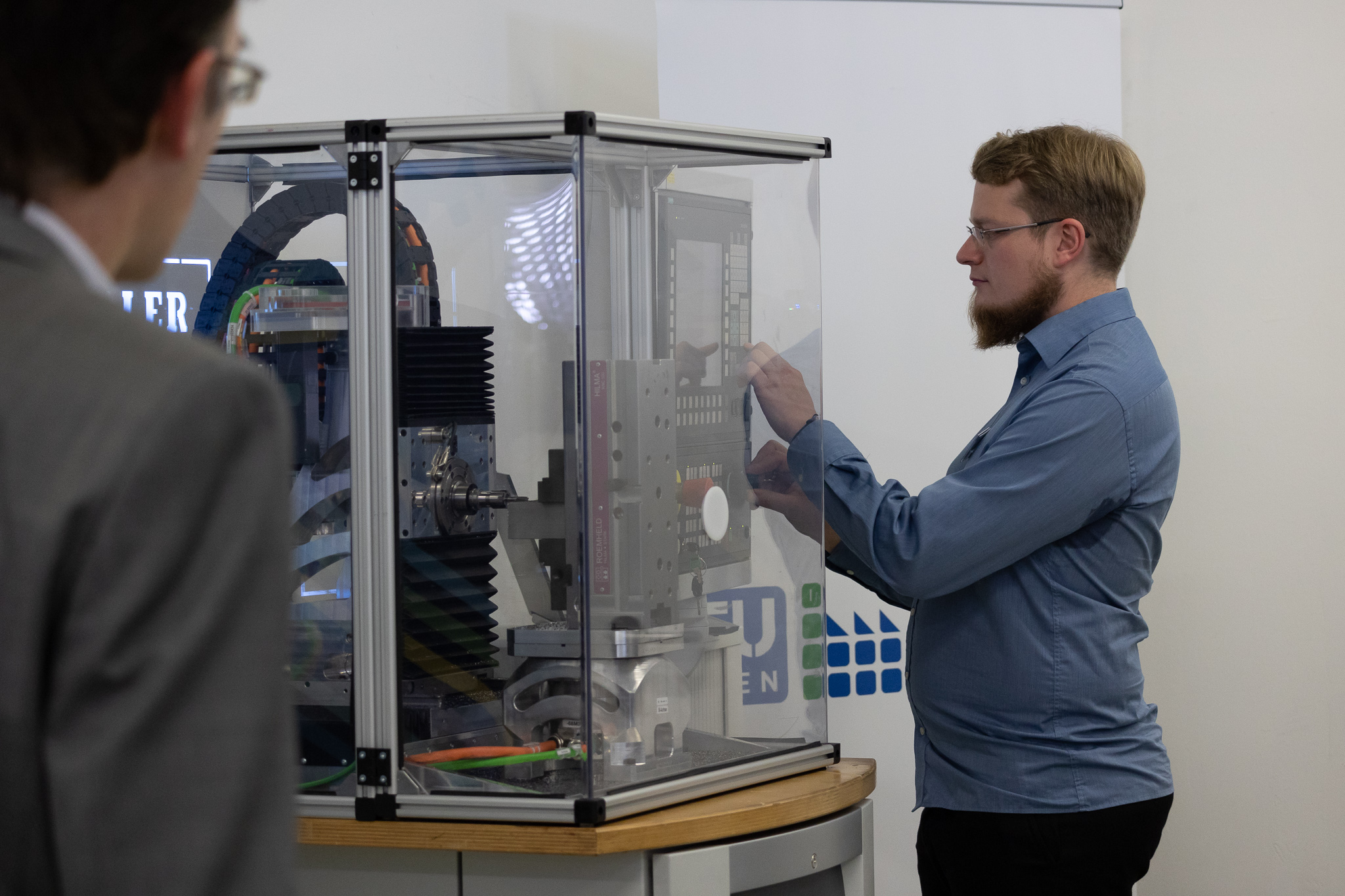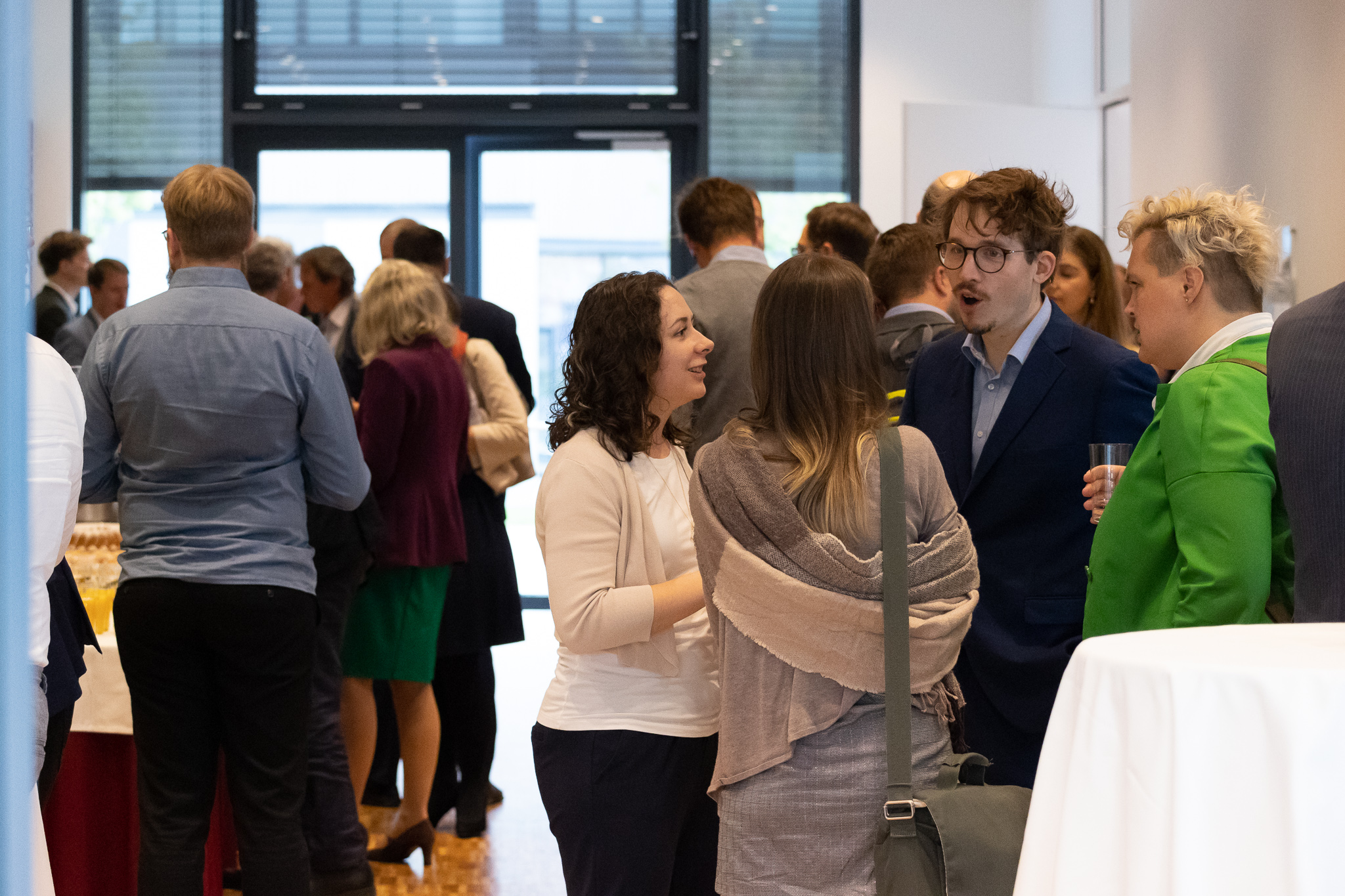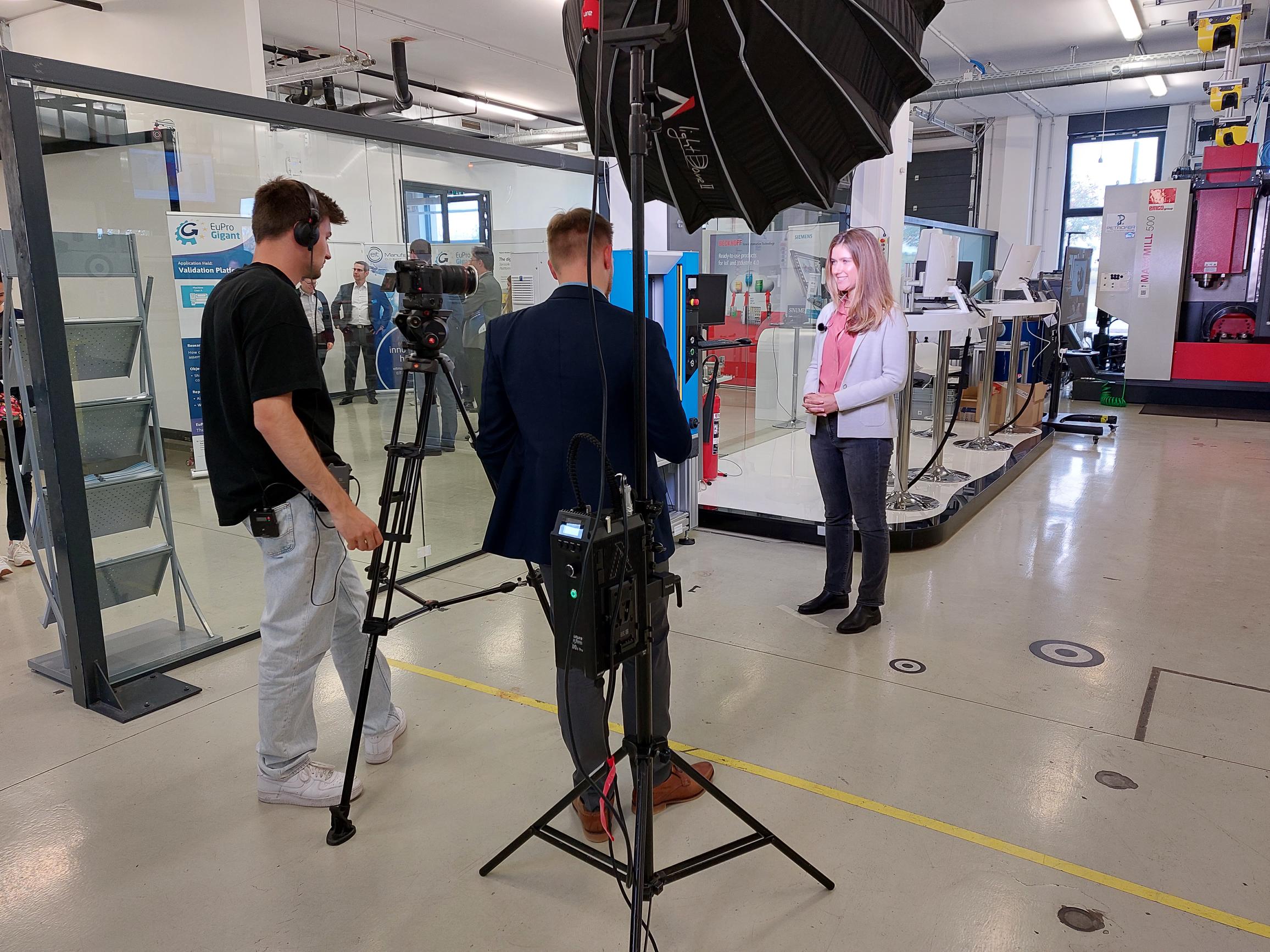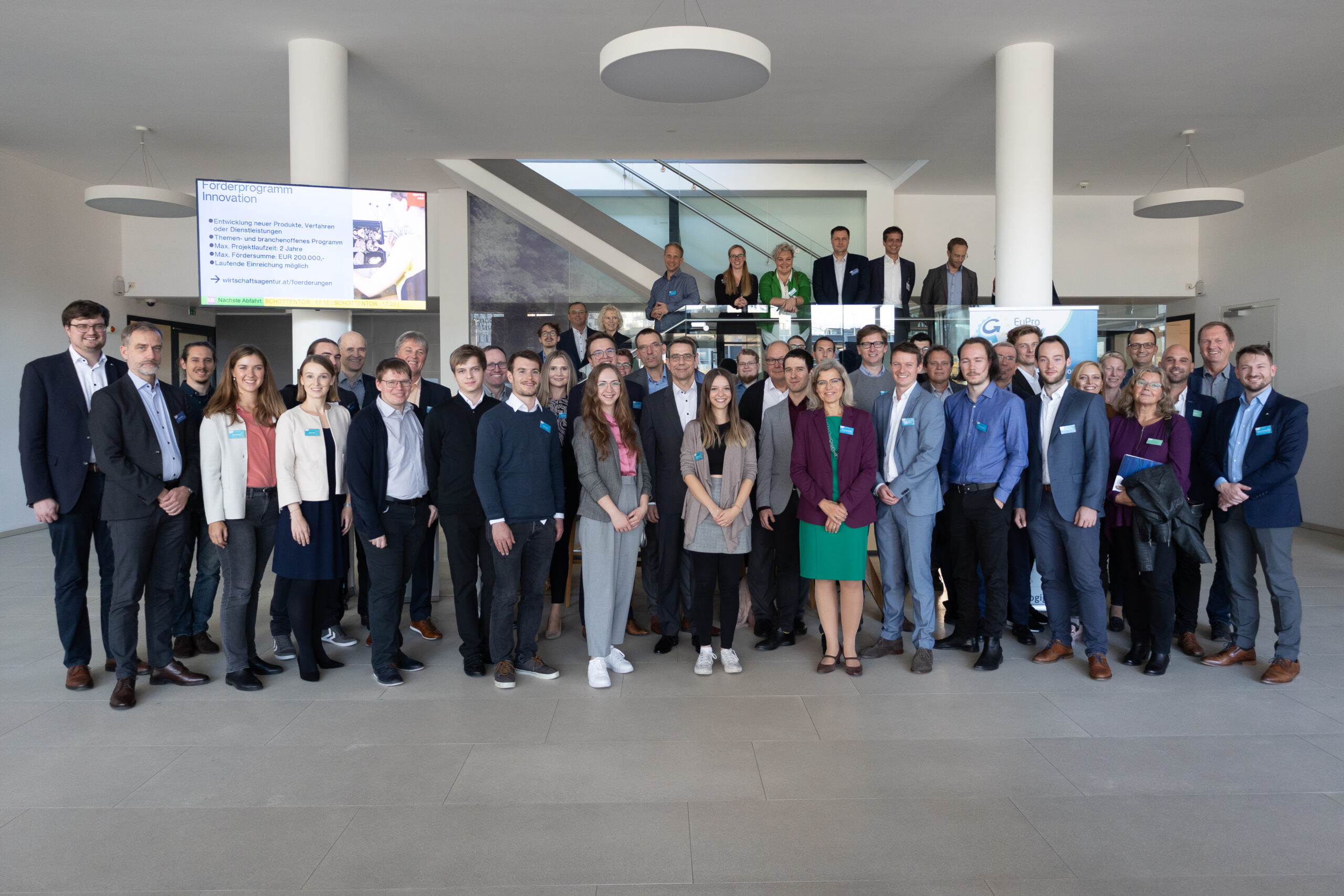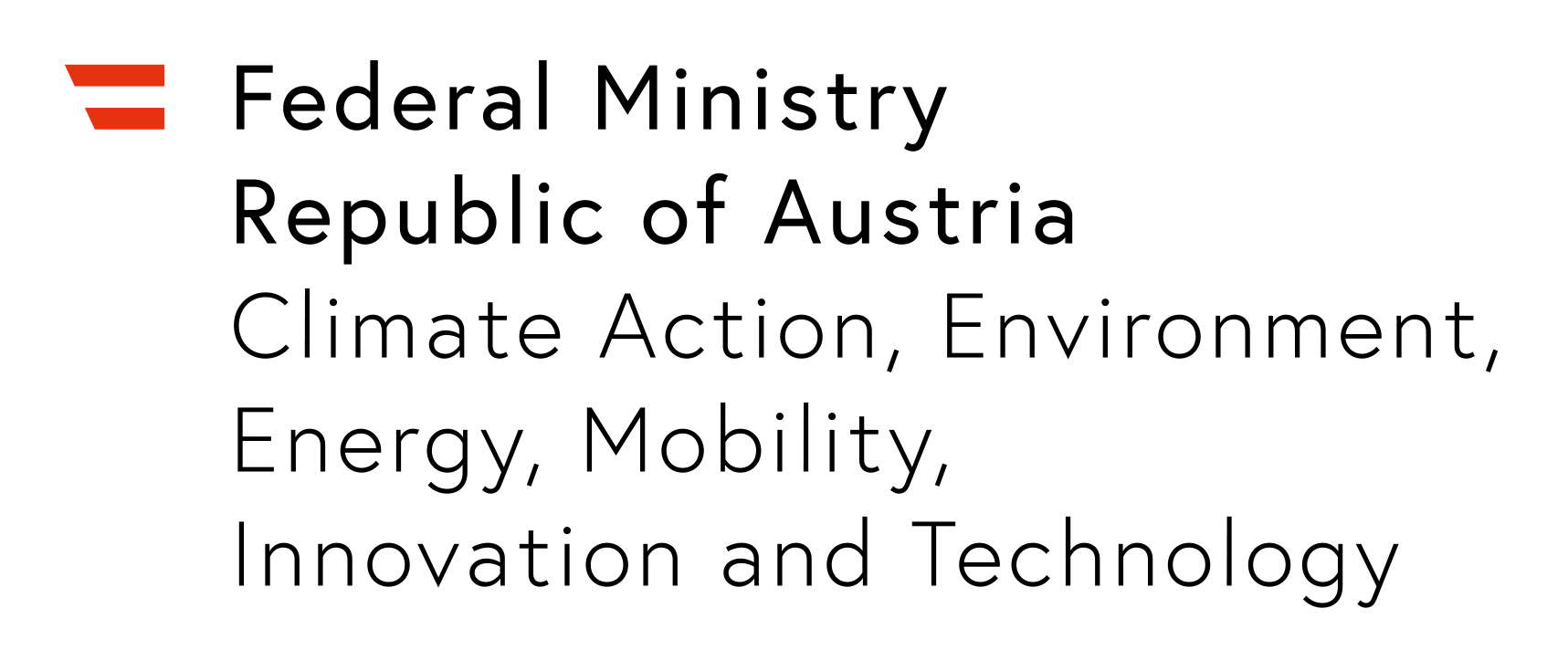EuProGigant Open House Day successfully demonstrates project progress and inspires project consortium
Digitisation, networking and trust were the keywords of the first EuProGigant Open House Day, which connected project partners and funding authorities as well as members of the three advisory boards in Vienna on 4 October 2022. In addition to a review of the project’s progress over the past 1.5 years, including achieved milestones, participants from Germany and Austria discussed upcoming developments of the research project.
“EuProGigant is a Gaia-X lighthouse project that is making very good progress and has a lot of radiant power – stay tuned”, with these words Prof. Dr.-Ing. Matthias Weigold (Head of the Institute for Production Management, Technology and Machine Tools at TU Darmstadt) and Univ. Prof. Dipl.-Ing. Dr. techn. Friedrich Bleicher (Head of the Institute of Production Engineering and Photonic Technologies at Vienna University of Technology) welcomed the more than 80 participants at the Pilot Factory Industry 4.0.
Right on schedule
With the EuProGigant Open House Day another successful milestone meeting (M3) took place, where the current project status was communicated and further approaches about the direction of the project were discussed. The EuProGigant project team looks back on a positive project progress according to plan: all three milestones, M1 to M3, were successfully achieved. Key findings from the project phase on the respective milestones have already been prepared and published in various articles for different target groups.
Showing how it can work
Developed from the needs of industry, the event demonstrated the importance of the project for the European manufacturing sector. “Whether it’s the Green Deal, predictive maintenance or resource savings – with EuProGigant and its seven use cases we are addressing important industry challenges,” explained Viktor Berchtenbreiter, project manager on the German side. “However, before companies can benefit from the advantages of data sharing – including increased speed of value creation or even faster and more innovative product development – barriers such as interoperability, costs and lack of access must first be reduced. This is where the new data infrastructure Gaia-X can help.”
Use cases made tangible
After the participants had gained first insights into the diverse use cases during the presentations, they were able to experience the latest developments live. At four stations, the project partners presented the challenges and the solutions envisioned for them:
- Metal chips were literally flying at the demonstrator of Benjamin Brockhaus (PTW TU Darmstadt) and Stefan Dumss (MIVP TU Wien). Using several connected CNC machines at different locations, the Validation Platform supports the establishment of a basis of operating data across companies and thus enable effective condition monitoring.
- The two software experts from Concircle Österreich GmbH – Dr. Konrad Pfadenhauer and Clemens Neuwirth – presented the thematic working group Ideal Component Matching. This is concerned with the optimized, data-based compilation of precisely fitting assembly components. A matching service enables the coordination of measurement data of different components for a more efficient production and for saving resources (e.g. post-processing).
- At the station of the Mobile Processing Machine working group, Gerald Lobner (Plasser Theurer) and Wolfgang Obenaus (Track Machines Connected) explained to the participants what mobile processing of workpieces could look like in the future. In this case, the machine comes to the workpiece (a track construction machine to the rail track). The plan is to process large amounts of data during the maintenance of railroad tracks and to use the data for autonomous planning.
- How can companies reduce their emissions as part of the Green Deal and the upcoming Supply Chain Act? The thematic working group CO2 footprint in the product development process, presented by Tobias Koch (PTW TU Darmstadt), is working on this problem. The focus is on components in whose design phase producers can already have a major influence on the ecological footprint by choosing the right material and the manufacturing process.
Further information on the thematic working groups can be found here.
A research project connects generations
With three committees accompanying the project, the project team regularly obtains feedback from industry and research and thus reflects on the development and implementation of EuProGigant. During the Open House Day, participants from the Industrial Committee, Intergenerational Advisory Board and the Scientific Advisory Board had the opportunity to learn more about the current progress of the project, network with the project partners and experience the first demonstrators on site.
“We are very pleased that our event has been so well received and that it promotes exchange between the generations,” explains Dr. Claudia Schickling, head of the Pilot Factory Industry 4.0 TU Wien and project manager on the Austrian side. “As a research project, the involvement of young people who may have just started their careers is just as important to us as the transfer of knowledge from groups with professional experience. We are especially proud of our Intergenerational Advisory Board, where we have a strong female representation.”


